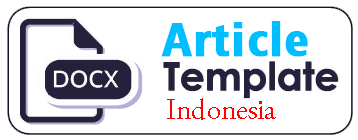The effectiveness of blended learning scientific writing training in the condition of multitasking participants
DOI:
https://doi.org/10.54849/monas.v4i2.113Keywords:
employee workload, post-training evaluation, academic writing trainingAbstract
The purpose of this study was to examine a learning phenomenon that emerged during the hectic distance learning method (online), namely the multitasking phenomenon carried out by trainees. This research is interesting because currently multitasking is an obstacle as well as a challenge faced by every online training participant. The question to be answered is whether the training are effective, when participants are doing multitasking. This research was conducted on participants of the Scientific Writing Training (KTI) at the Central Statistics Agency's Education and Training Center in 2021 and 2022. The method used in this study was descriptive quantitative analysis. The results of this study show that the participation of the trainees as indicated by their virtual attendance and their focus/concentration is disrupted by the large number of workloads (multitasking). However, the participants' multitasking conditions did not affect the effectiveness of the training as indicated by the increase in the post-test scores from the pre-test scores and the completion of the paper manuscript assignment. Nevertheless, the training organizers and the leaders of the trainees still need to consider this fact to take actions to reduce multitasking tension so as to increase the level of attendance and focus/concentration of the trainees.
Downloads
Published
Issue
Section
License
Authors who publish in this journal agree to the following terms:
- Authors retain copyright and grant the journal right of first publication with the work simultaneously licensed under a Creative Commons Attribution-NonCommercial-ShareAlike 4.0 International License that allows others to share the work with an acknowledgement of the work's authorship and initial publication in this journal.
- The journal allows the authors to hold the copyright without restrictions and to retain publishing rights without restrictions.
- Authors can enter into separate, additional contractual arrangements for the non-exclusive distribution of the journal's published version of the work (e.g., post it to an institutional repository or publish it in a book), with an acknowledgement of its initial publication in this journal.







